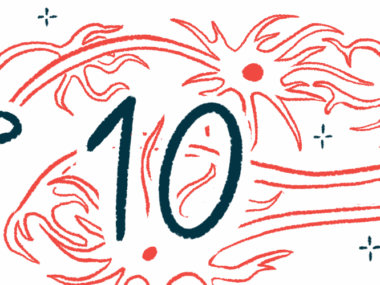AAN 2024: Trial investigator shares details from Relyvrio failure in ALS
PHOENIX data on now-withdrawn treatment will 'inform future ALS trials'
Written by |

While the now-discontinued amyotrophic lateral sclerosis (ALS) therapy Relyvrio (sodium phenylbutyrate and taurursodiol) failed to show a meaningful effect on disease progression, lung function, or life quality in the Phase 3 PHOENIX clinical trial, ongoing analyses will look at other outcomes such as biomarkers and survival.
That’s according to a presentation from one of the trial’s primary investigators, Leonard H. Van den Berg, MD, PhD, given at the American Academy of Neurology (AAN) 2024 Annual Meeting. The AAN meeting is being held April 13-18, in Denver, and virtually.
“PHOENIX was a well-powered and a well-executed trial,” Van den Berg said in the presentation, titled “Results From a Global Phase 3 Trial Evaluating an Oral, Fixed-Dose Combination of Sodium Phenylbutyrate and Taurursodiol in Amyotrophic Lateral Sclerosis.”
“We will continue to learn from PHOENIX to inform future ALS trials,” Van den Berg said.
Relyvrio’s developer Amylyx Pharmaceuticals voluntarily took the therapy off the market in the U.S. and Canada — where it was marketed as Albrioza — earlier this month after the company first announced that PHOENIX had failed to meet its main goal.
The medication no longer is available to new patients in either country. However, patients already on Relyvrio as of the April 4 withdrawal date who wish to remain on treatment may be able to transition to a free drug program in consultation with their doctor.
PHOENIX trial was intended to confirm positive results from CENTAUR
Formerly known as AMX0035, Relyvrio is a fixed-dose oral combination of sodium phenylbutyrate and taurursodiol. The two medications are believed to work together to prevent nerve cell death in ALS.
Relyvrio was approved in both the U.S. and Canada in 2022 based on findings from the Phase 2 CENTAUR study (NCT03127514), which involved adults with recently diagnosed and rapidly progressing ALS.
In CENTAUR, the oral medication was associated with slower functional declines compared with a placebo, with evidence that it may also extend survival.
Still, experts were not altogether convinced of the treatment’s efficacy for ALS patients. Indeed, the European Medicines Agency voted against the approval of Relyvrio in the European Union based on data from CENTAUR alone. The treatment’s clearance in Canada also was conditional, meaning regulators wanted to see more clinical trial data before converting to a full approval.
PHOENIX (NCT05021536) was the Phase 3 trial intended to confirm Relyvrio’s safety and effectiveness in a larger group of patients across the U.S. and Europe. A total of 664 people with definite or probable ALS, who were within two years of symptom onset, were enrolled and randomly assigned to receive oral Relyvrio or a placebo for 48 weeks, or about a year.
The primary goal was to confirm the main finding from CENTAUR — that Relyvrio significantly slowed functional declines, as assessed by the ALS Functional Rating Scale-Revised (ALSFRS-R), compared with a placebo.
According to Van den Berg’s presentation, the demographic and clinical characteristics of participants in the Relyvrio and placebo groups were well-balanced. In both groups, the average age was about 60, most patients were men (60%-63%), and nearly all (91%-93%) were taking a stable dose of riluzole (sold as Rilutek among others) upon entering the trial. There also were 3% of patients in each group receiving edaravone, which is approved as Radicava or Radicava ORS.
Ultimately, however, the results of the trial’s primary outcome measure showed that ALSFRS-R scores dropped by an average of 14.98 points in the Relyvrio group and by 15.32 points in the placebo group — a non-significant difference.
Likewise, there was no significant benefit of Relyvrio in pre-specified subgroups, including patients who were not concurrently using edaravone, and patients enrolled only at European sites.
Further survival data on Relyvrio likely not available before 2026
The researchers also looked at a subgroup of “CENTAUR-like” patients, or those who matched the enrollment criteria for the earlier Phase 2 trial. Specifically, those patients had definite ALS and greater than 60% of normal lung function. These individuals also were within 1.5 years of symptom onset.
While those patients did “somewhat better” in terms of disease progression when given Relyvrio, Van den Berg noted that the PHOENIX findings still failed to reach statistical significance in comparison to the placebo in that subgroup.
Secondary goals related to life quality and lung function also were not met.
Overall, despite “promising results” from CENTAUR, “there were no differences between the groups for the primary endpoints and the secondary endpoints in the Phase 3 study,” Van den Berg concluded.
In terms of survival, the scientist said there’s still not enough data to adequately evaluate Relyvrio’s effects. An open-label extension phase of the trial is still ongoing, in which participants will receive Relyvrio for up to about two more years. However, Van den Berg said mature survival data may not be available before February 2026.
“We will continue to collect survival data, as survival is an important outcome measure in ALS trials,” Van den Berg said.
As a community, we all work together to find better treatments for our patients, and we will do that even harder after these results.
Other analyses also are still ongoing, including biomarker and subgroup analyses, particularly within the CENTAUR-like population.
Relyvrio was generally well tolerated, with safety findings consistent with the CENTAUR trial. Only diarrhea was more common with Relyvrio versus the placebo.
Van den Berg extended a thank you to PHOENIX participants, investigators, and clinical sites.
“As a community, we all work together to find better treatments for our patients, and we will do that even harder after these results,” the scientist concluded.







